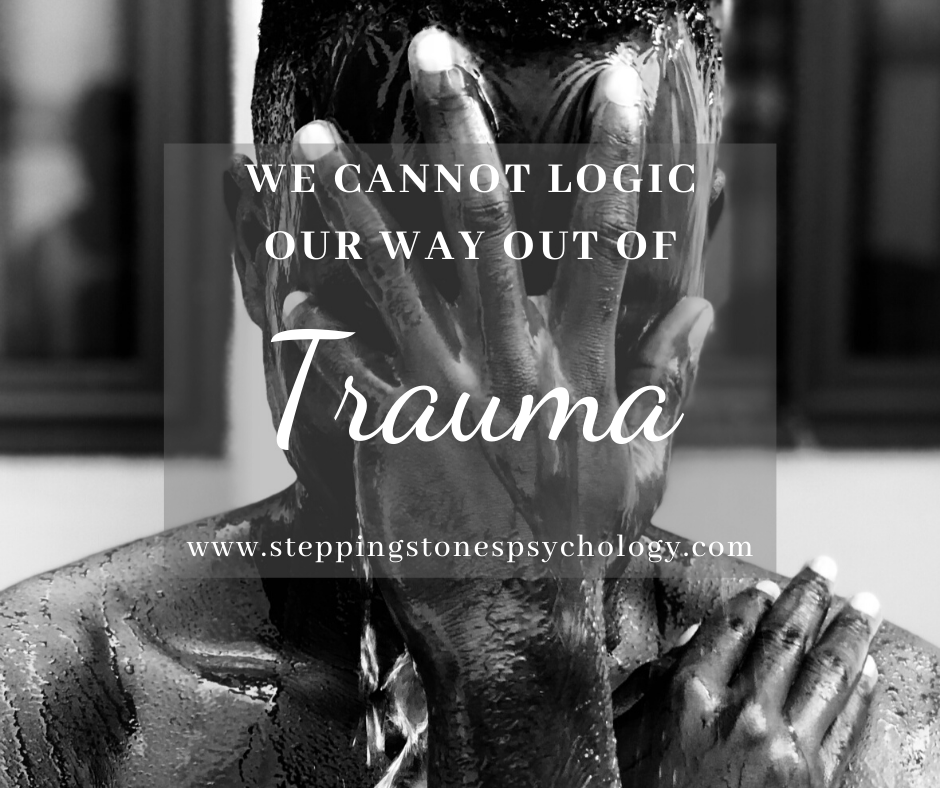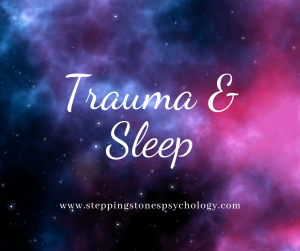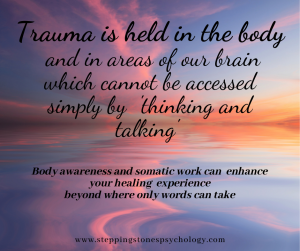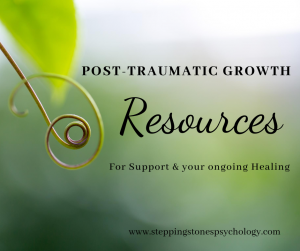You may wonder why despite knowing things logically, you still feel stuck in your healing journey.
Perhaps, intellectually you know of the reasons. The problem is we cannot logic our way out of trauma. This is one of the main reasons many people who have experienced trauma feel they have ‘failed’ after years of being in talking therapy or using self-help material. The reason is that in both cases you are using your ‘logical/thinking/rational brain’. That part of our brain has little ability to change the deeper parts of the brain, especially when the body is in a trauma response or distress. So talking therapy and self-help stuff only work when that part of our brain is ‘switched on’. The problem is that when the rational part of the brain is hijacked by the trauma memory, it is literally not possible for us to hear words, reason or make meaning of events and experiences. This is why we keep being stuck in survival mode in our healing journey. This can often make us feel frustrated that despite doing ‘all the work’ we are not moving forward.
A large part of trauma healing is the ability to offer self-compassion, particularly nurturing your wounded inner child. However, you may again be stuck here. You may be trying to offer self-compassion from a logical or intellectual stand. This is good progress and going in the right direction, however, it is only surface-level healing work. Deeper healing happens when we go deeper, and that is working on the unconscious part of ourselves. Most importantly, there is another aspect to consider here when we reflect on the constant block that comes in the way of self-compassion: The toxic shame and self-loathing which trauma survivors often carry – if not consciously, they will be carrying it unconsciously. Without this being explored and brought into awareness, it will be there and become a block when it comes to offering self-compassion. All this will be hard to do on our own as it needs to be relational when there was relational trauma in the first place. One way to work on this will be with a competent trauma-informed therapist or join a trauma-informed group therapeutic session. The latter can add a different aspect to the relational element in that it fosters collective healing where you and other trauma survivors will be held, seen and heard by each other. This can be very powerful and extremely validating.
Here at Stepping Stones Psychology we offer both. Please feel free to get in touch if you are interested and like to discuss this further.
©2020 Stepping Stones Psychology. All Rights Reserved




